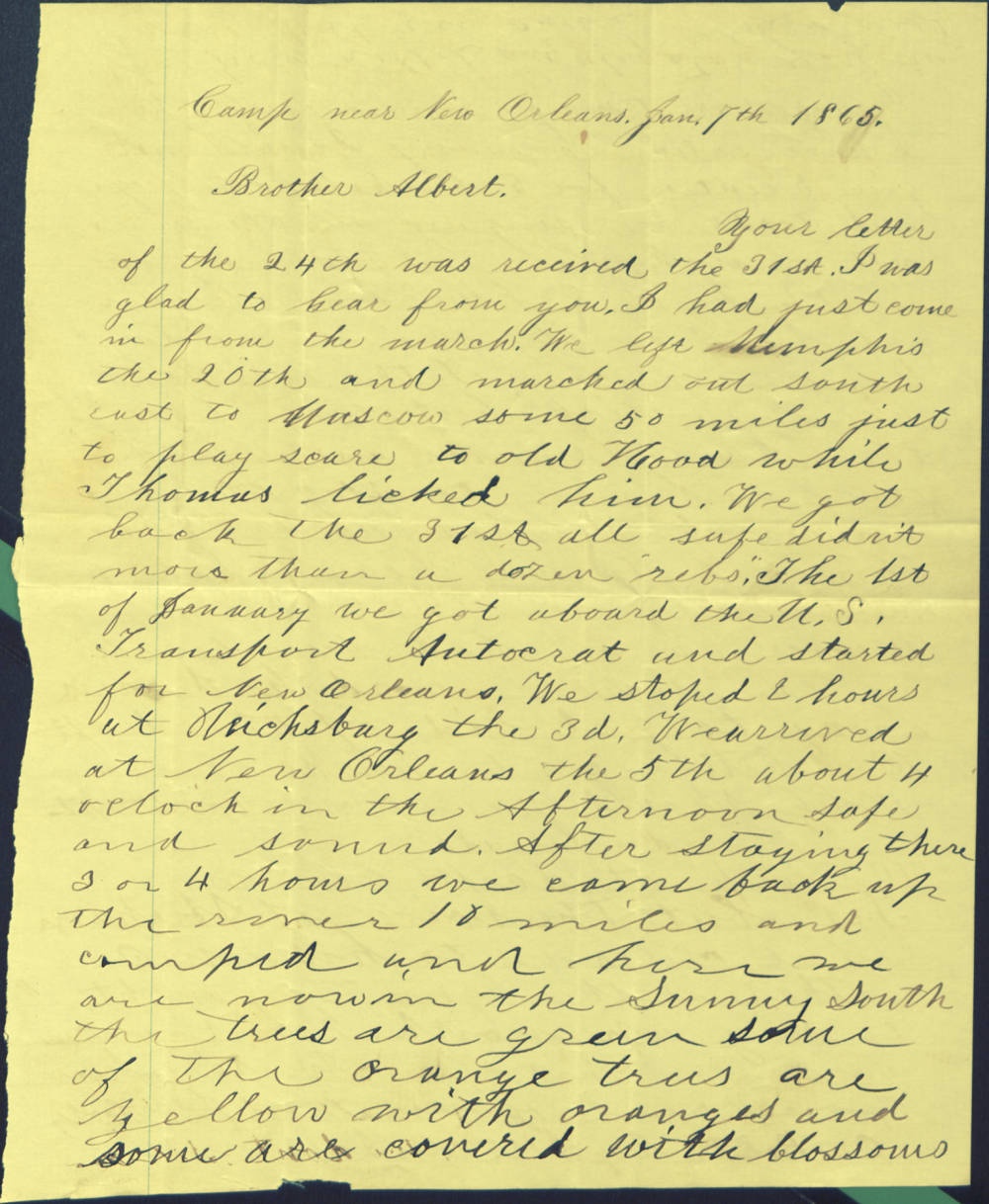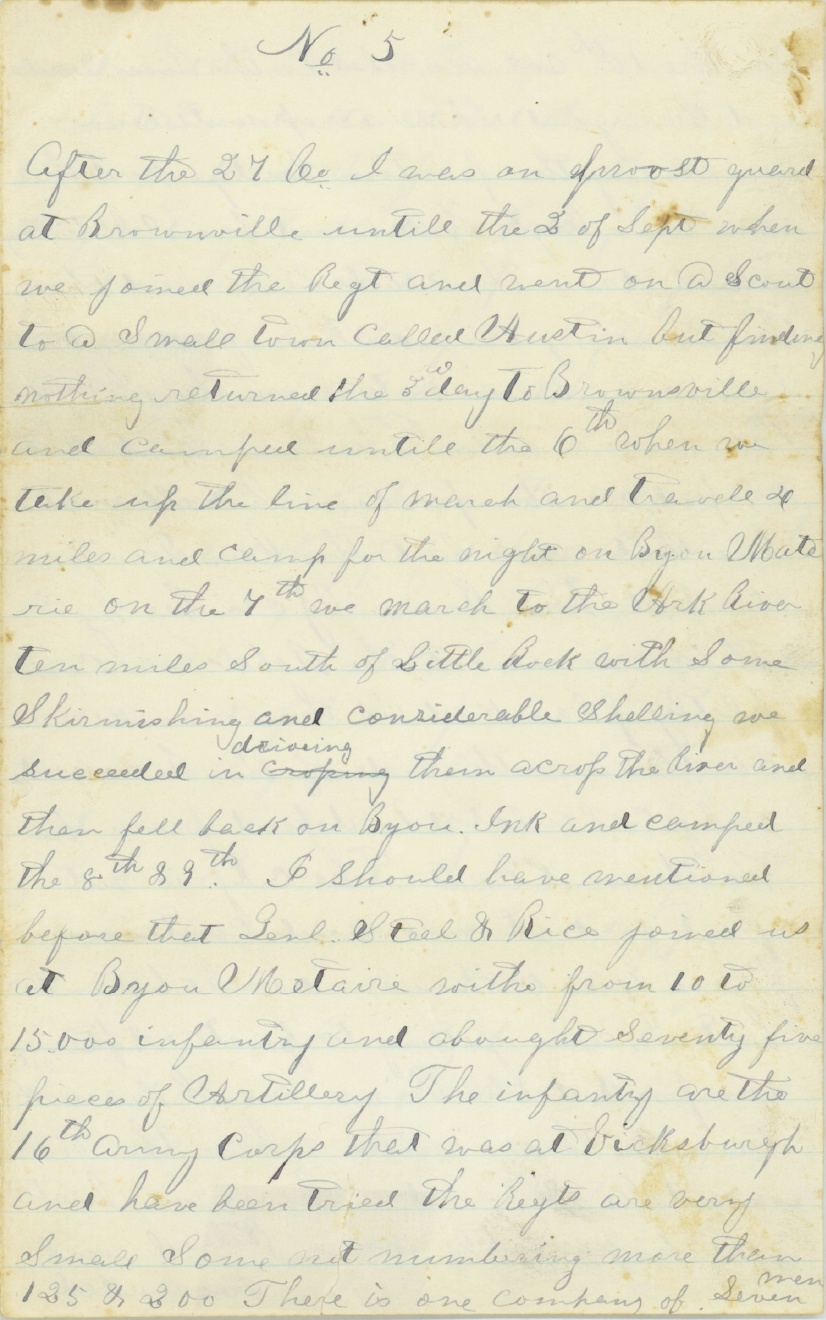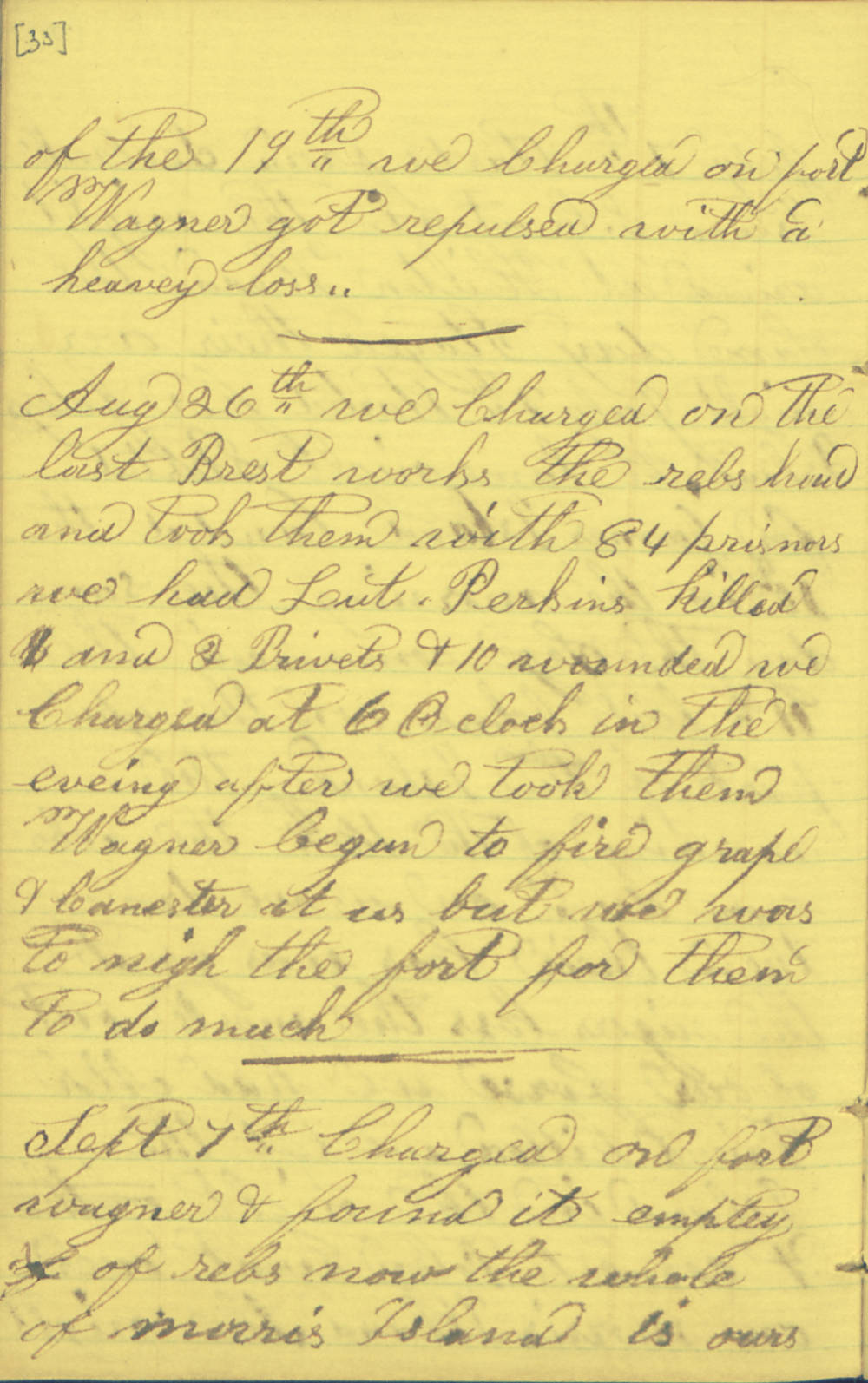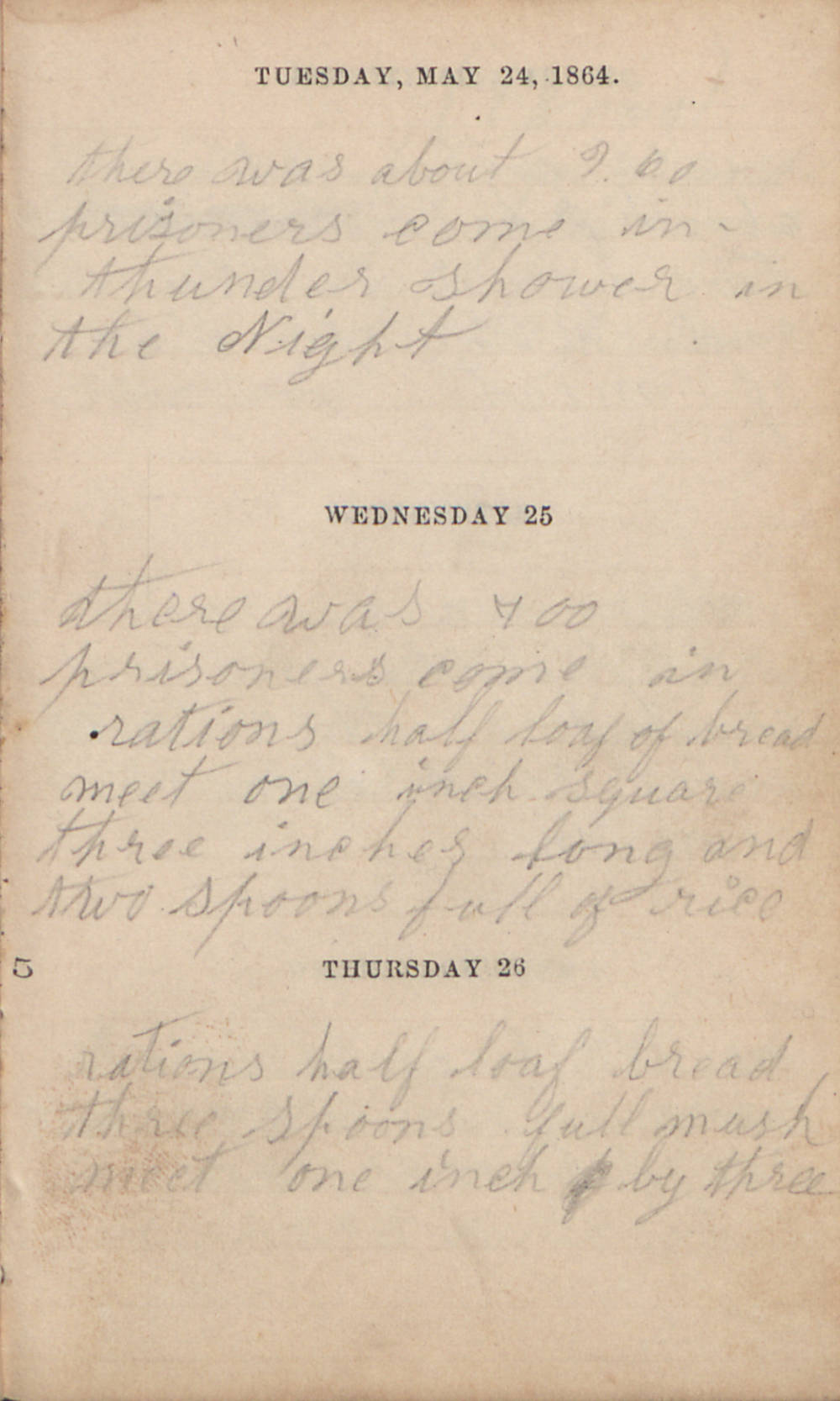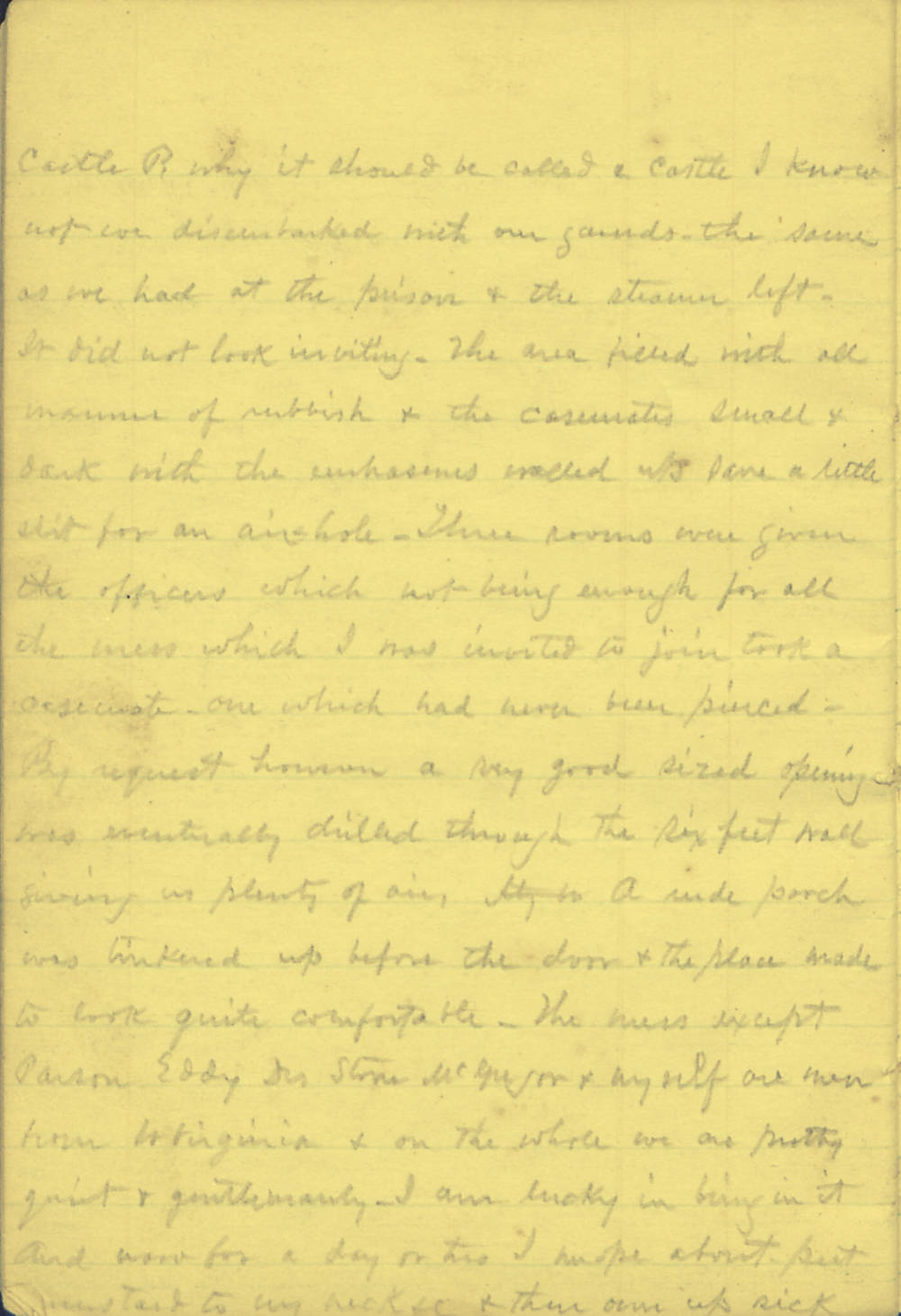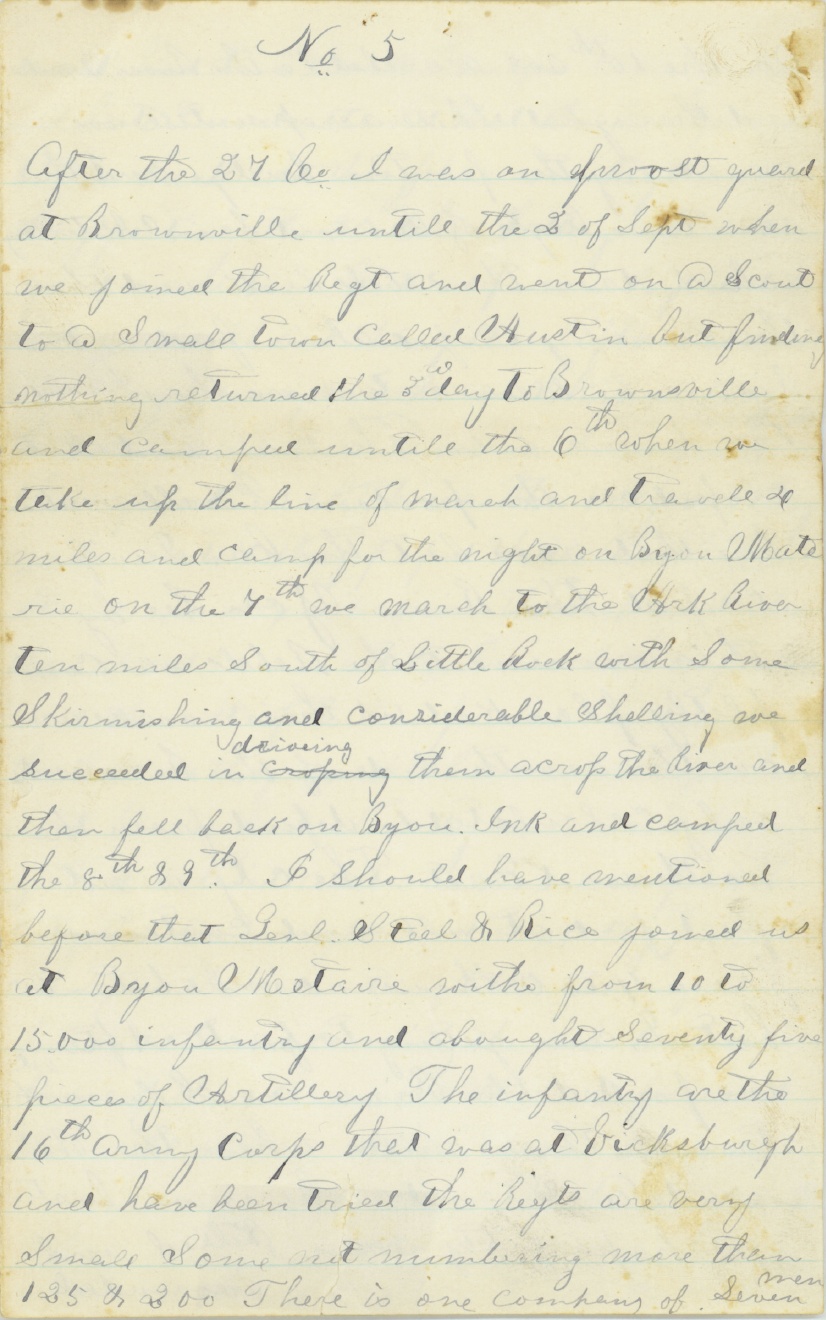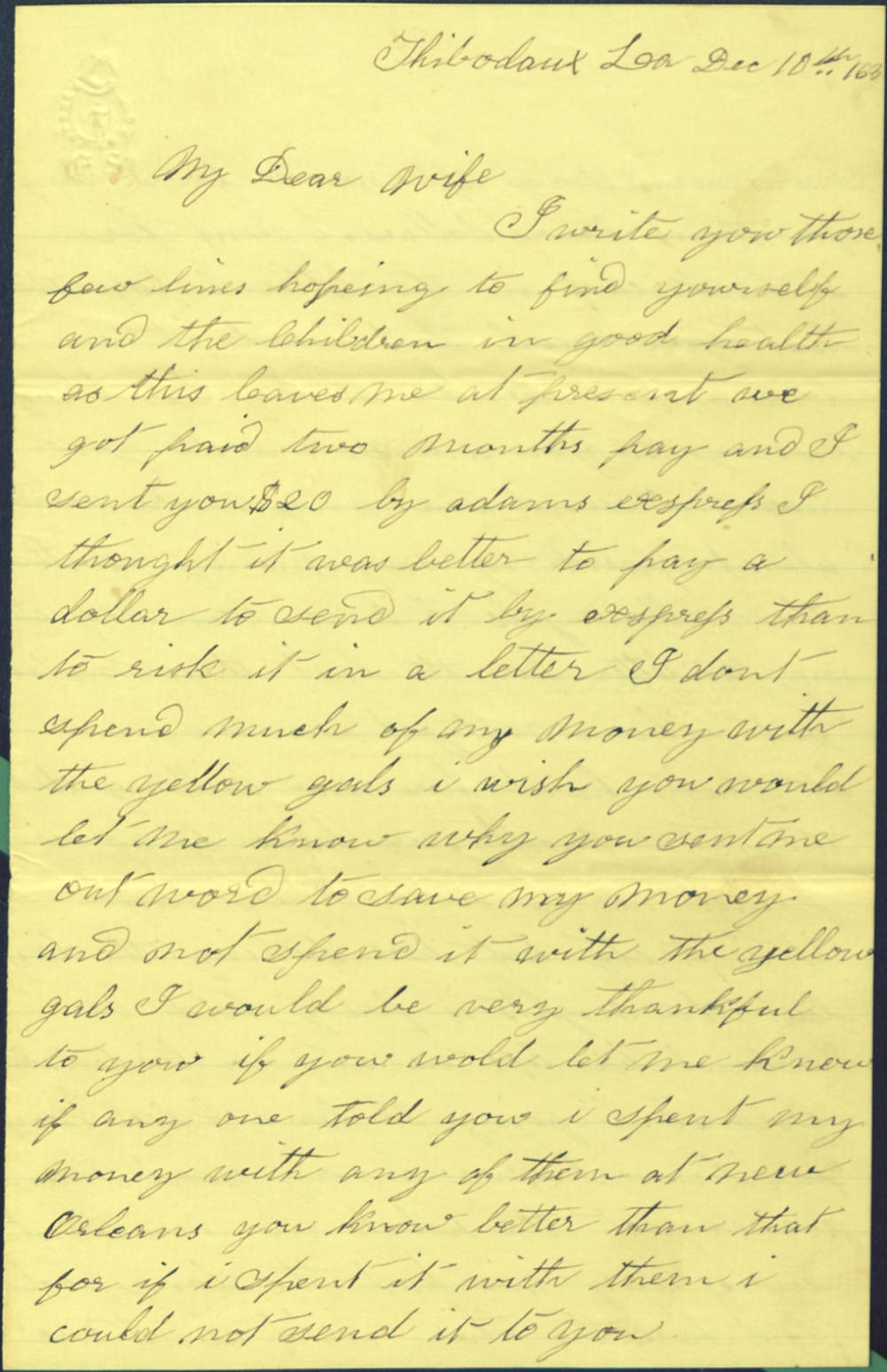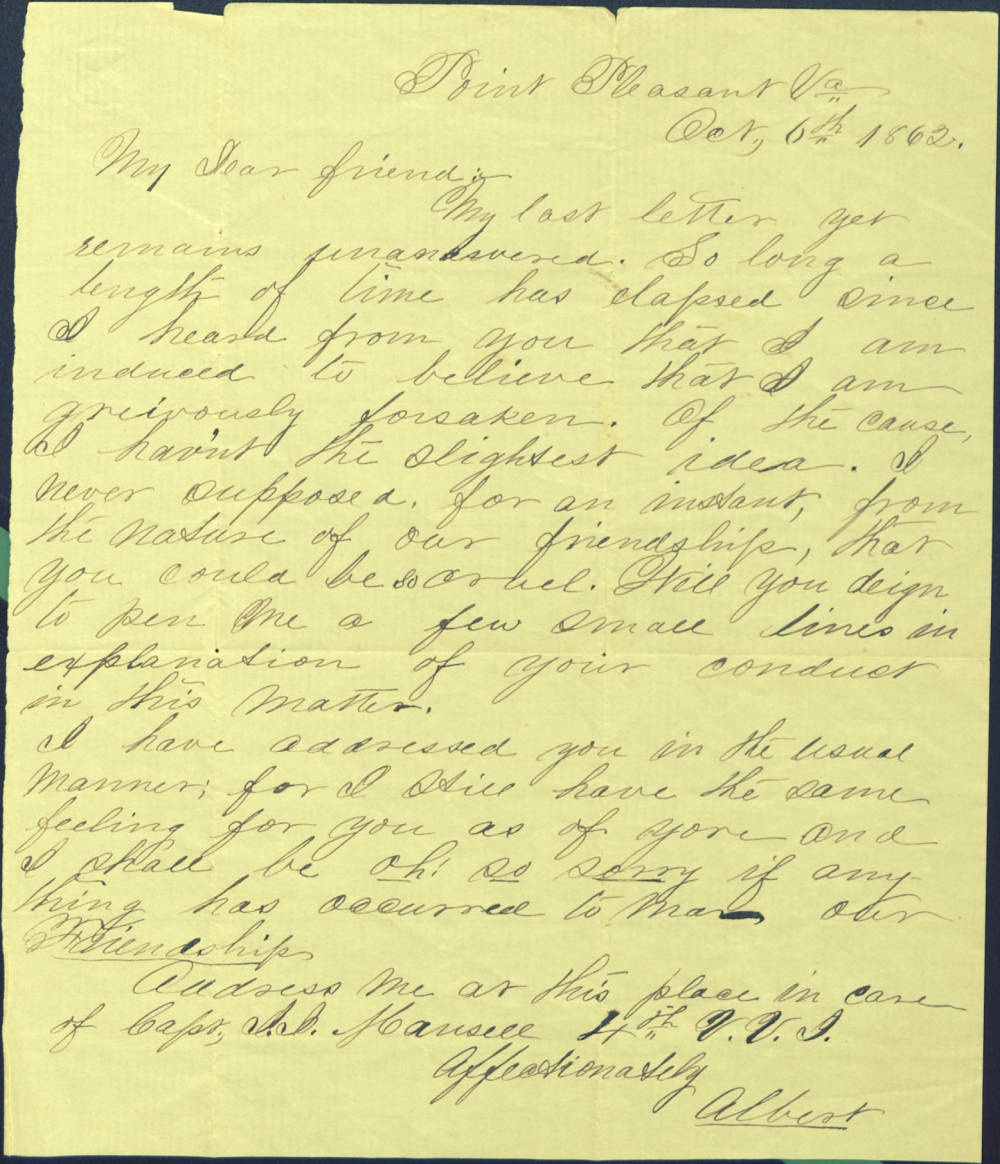|
This curation focuses on Federal soldiers who saw significant combat in the Confederate states. The material was written throughout the South in camps, hospitals, and prisons.
Highlights include:
John H. Brown - 24th Massachusetts Infantry Regiment - In his diary he covers the military campaign in eastern North Carolina in late 1862, and the siege of Fort Johnson, S.C., and Fort Wagner, S.C. from July 1863 to September 1863. The diary describes marches, maneuvers, casualties and deaths, including African American losses, possibly of the 54th Massachusetts Infantry Regiment.
Mahlon D. Cushman - Private in Company I of the 16th Connecticut Infantry Regiment - After his garrison surrendered at Plymouth, N.C., Cushman was sent to the Andersonville Prison. In his pocket diary he recorded his capture by Confederate soldiers at the Battle of Plymouth and his arrival at Andersonville Prison on May 2, 1864. Cushman notes the deaths of hundreds of prisoners. He also recorded his daily food ration and the weather.
Charles L. Hewitt - Company E, Connecticut 7th Infantry Regiment - In his diary Hewitt wrote an account about the fate of 120 soldiers that he served with in the Connecticut 7th Infantry. He gave details including dates and locations of soldiers killed in action, wounded, promoted, or who deserted. Includes letters written to his family while Hewitt was on a gunboat.
J.M. Drake - Company A 4th Massachusetts Regiment. Drake writes to his father about his wishes to be discharged; misconduct by Union troops in Virginia; his assignment of going under the flag of truce to bring back the dead from the battlefield, his participation in an attempt to capture Confederate Colonel Jones at his house.
Charles Carroll Gray - United States Medical Officer - Gray's diary written in 1861 and 1862 includes accounts of his service at the Battle of Manassas. He later was held in Confederate prisons, including Libby Prison in Richmond, Va., and Castle Pinckney in Charleston, South Carolina. The diary entries are extremely detailed, especially concerning medical conditions of the prisoners and social interactions between prisoners and guards.
Emmett Cole - Company F, 8th Michigan Infantry Regiment. He appears to have died from wounds sustained in battle in Charleston, S.C., around the end of June 1862. The letters contain descriptions of the engagements in which he participated, including the 1861 Port Royal, S.C., expedition; the 1862 siege of Fort Pulaski, Ga.; and the attack on Secessionville, S.C., in 1862. The letters also include description of military life, stories about interactions between Union and Confederate soldiers on picket duty, speculation on the conduct and potential duration of the War, and discussion of financial matters. Also included is a letter from James I. McCarter of Charleston, S.C., who visited Cole in a hospital for wounded prisoners and wrote to Cole's father relating his son's dire condition.
Charles William Dustan - Dustan was the son of Isaac K. Dustan, captain of the steamer Atlantic. During the Civil War Dunstan first served with the 71st New York Militia Regiment in 1861 and as captain in the 53rd New York Infantry Regiment 1861-1862, in Virginia, Mississippi and Tennessee. His letters cover camp life, troop movements, morale, and discipline problems, including a mutiny in the 53rd Regiment, conditions and events in Memphis.
To the Father of Lt. John Sterne - Six members of Sterne's company collaborated to write a letter to his father relating the details of his death on October 17, 1862 from his wound suffered at the Battle of Corinth on October, 4 1862.
J. Smith DuShane - Sergeant in Company K of the 100th Pennsylvania Infantry Regiment. DuShane's field service was mostly in South Carolina and Virginia. In letters written to his future wife Adela he writes about: The commandeering of the Confederate steamship Planter by its slave pilot; Defiance by the residents of Fredericksburg, Virginia; Soldiers' retaliation against the so-called "land shark" peddlers who followed the regiment through Virginia. After being wounded in the Second Battle of Manassas, he writes about the events leading up his injury.
Charles W. Hill - Massachusetts Volunteer Infantry - In a letter dated March 19, 1863, Hill writes about a conversion with a slave who recently escaped, who was a servant of Confederate General J. Johnston Pettigrew.
Henry E. Simmons - Sergeant 11th Rhode Island - Simmon's letters touch on his religious efforts among the soldiers and his observations of blacks and black laborers employed by the army. His later letters cover his work as the principal of a freedmen's school in Arlington, Virginia.
James A. Burnett - Co H 26th Regiment of Missouri. Burnett died of cholera in a field hospital near Vicksburg on June 19, 1863. His letters discuss his criticisms of the management of the war, the poor health of his regiment, and his displeasure of his regiment working with black regiments
Douglas Ritchie Bushnell - 13th Illinois Infantry - Bushnell was killed in action at Ringgold, Georgia, in November 1863. His letters were written during campaigns in Missouri, Arkansas, Louisiana, Mississippi, Alabama, and Tennessee.
Elias Perry - Lieutenant Perry's diary covers Sherman's March to the Sea from November 12, 1864 to March 24, 1865.
Gould - A Hospitalized Soldier. In a letter to a friend he describes the siege of Fort Hudson, Louisiana in which he was wounded and a third of his regiment lost.
Harvey Reid - 22nd Wisconsin Infantry Regiment. He participated in the campaigns against Morgan's Confederate Cavalry in Kentucky in 1863 and later in Sherman's march through Georgia and the Carolinas. |
